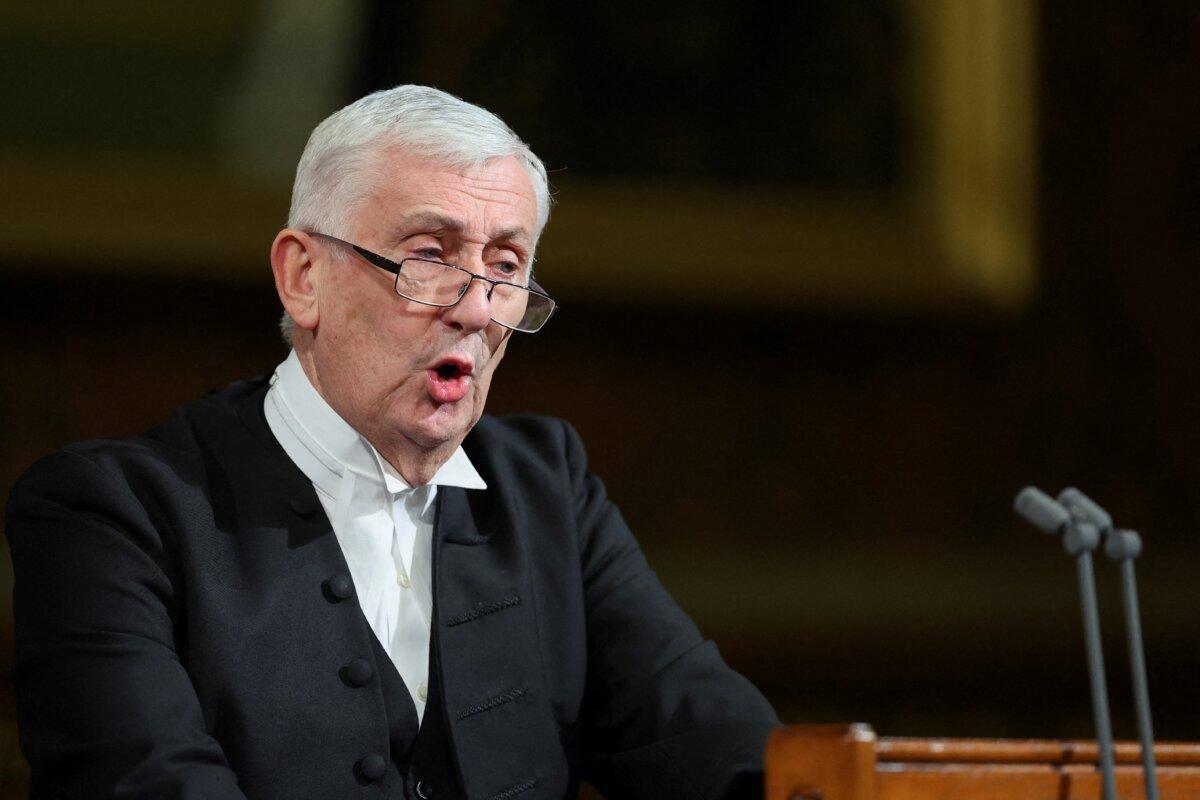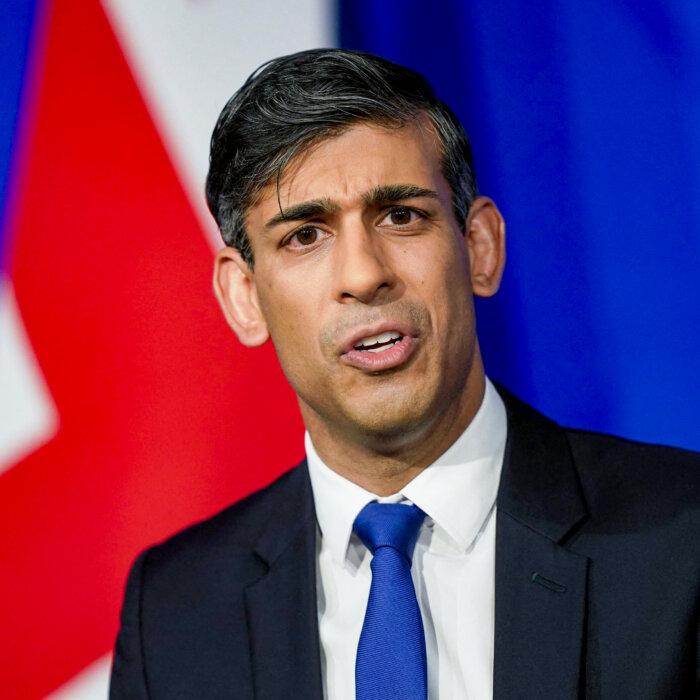Home Secretary James Cleverly has backed Sir Lindsay Hoyle as the House of Commons speaker faces mounting pressure to resign.
By Friday afternoon, 71 MPs, more than a 10th of the Commons, had signed a motion over his handling of the Gaza ceasefire debate on Wednesday, with one more signature withdrawn.
There is no formal procedure for removing a speaker, but in 2009 Michael Martin resigned from the post after it became clear he had lost the confidence of MPs across the Commons.
Mr. Cleverly voiced his support for the speaker, who is a Labour MP for Chorley in Lancashire who became speaker in 2019, saying Sir Lindsay had “made a mistake” and “apologised for the mistake.”
Sir Lindsay came under fire during the Scottish National Party’s (SNP’s) opposition day debate on calling for a ceasefire in Gaza after he decided the House should vote on Labour’s amendment first, before moving on to the government’s amendment and the main SNP motion.
The speaker said the decision was made to ensure the House can consider “the widest possible range of options,” and that there had been a precedent.
However, the debate descended into chaos with the government withdrawing its participation in protest and MPs walking out. The SNP’s motion was never put to the vote after the Labour amendment was passed without a vote.
As the second largest opposition party in the Commons, the SNP gets three opposition days per session, which it shares with small parties. The official opposition, Labour, gets 17 days.
Sir Lindsay later apologised to the House, saying he didn’t intend for the debate to end up the way it did. He also said he was “very, very concerned about the security of all members,” alluding to threats to MPs’ safety by aggressive pro-Palestine protesters and extremists.
However, the SNP’s Westminster leader Stephen Flynn accused the speaker of treating the party “with complete and utter contempt” by effectively turning an SNP opposition day into a Labour Party opposition day.
Labour leader Sir Keir Starmer has also been accused of pressuring Sir Lindsay to select the party’s amendment in a bid to avert a potential rebellion by Labour MPs, which he denied.
Sir Keir insisted he “simply urged” him to have “the broadest possible debate” by putting a number of options in front of MPs.
By Friday afternoon, 71 MPs had signed the motion of no confidence tabled by Conservative MP William Wragg, including 40 Tories, 30 SNP MPs, and an independent.

Speaking to Sky News on Friday, the home secretary firmly backed Sir Lindsay.
“I think the speaker has done a fantastic job. I think he’s been a breath of fresh air compared with his predecessor,” he said.
“He made a mistake. He’s apologised for the mistake. My view is that I’m supportive of him.”
Mr. Cleverly said it was his personal view because the selection of the speaker is “House business” rather than for government ministers to decide.
Speaking of threats to MPs, he said he was “conscious that there has been increased pressure” on parliamentarians, but added that MPs need to act without fear or favour.
“But the point I would make is ultimately members of Parliament and indeed elected officials through all layers of government have got to act without fear or favour,” he said.
He added that Parliament “should not be changing our procedures in response to threats or intimidation. That would indicate that the threats and the intimidation is working. That’s the opposite of the message that we want to send.”
The Israel–Hamas war began on Oct. 7 when Hamas terrorists, who control Gaza, launched surprise attacks against Israeli, killing some 1,200 Israelis and taking around 250 hostages. The terrorists have also been accused of raping and mutilating women and girls during the attack.
Israel, which launched missile attacks and a ground invasion of Gaza, has not reported further civilian deaths in the ensuing war, while the Hamas-controlled Gaza health ministry claims over 29,000 Palestinians have been killed.
The SNP’s motion, which mostly focused on the casualties in Gaza, called for “an immediate ceasefire in Gaza and Israel.”
The government’s amendment emphasised “Israel’s right to self-defence, in compliance with international humanitarian law.”
It “urges negotiations to agree an immediate humanitarian pause,” noting that Hamas needs to be removed from Gaza leadership and rendered incapable of launching further attacks in order to have a “credible pathway to a two-state solution.”
Labour’s amendment calls for “an immediate humanitarian ceasefire,” while noting that “Israel cannot be expected to cease fighting if Hamas continues with violence.”







